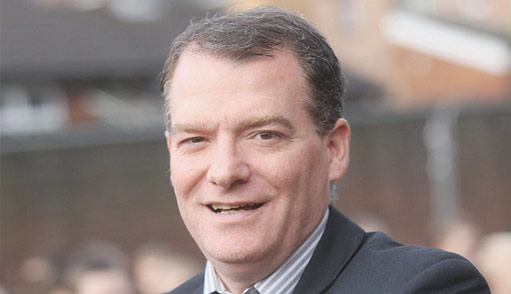Nationalism’s ‘watershed’ election


Chris Donnelly
“It’s early days, but there is no doubt that the election results have injected new momentum into the longer-term Irish nationalist project of reunification.”
The 2017 Assembly election will be remembered as the moment Northern Irish politics took its first step into post-majoritarian politics. A resurgent nationalism has been buoyed by the flexing of its own electoral muscle in a manner which transformed the political landscape in ways that were not expected.
Right across the north, nationalists turned out in unprecedented numbers. Sinn Féin’s 27.9 per cent of the overall vote represented the largest percentage share of the vote for any nationalist party in the history of the state. The party’s 224,245 votes was the first time a nationalist party had broken through the 200,000 vote mark.
The 39 nationalist seats represent a 43 per cent share of the overall Assembly seats, nationalism’s highest ever return. That figure increases to 44.4 per cent if the all-Ireland socialist People Before Profit seat secured by Gerry Carroll is included, a significant advance on the 37 per cent share of the overall seats secured less than a year previously at the 2016 Assembly election, when 40 seats from the 108 seat chamber were secured by the nationalist parties.
This is a watershed election, the first in which the demographic reality of a changing Northern Ireland has been borne out in electoral terms.
The significance of that will take time to register for the political classes of nationalism and unionism.
For the nationalist parties, there are a number of salient lessons to be learned that are likely to guide their actions in coming days, weeks and months.
The surging nationalist vote was a reaction to the sense that the pendulum had swung too far in unionism’s favour at Stormont. Ironically, this general sentiment had contributed to the declining nationalist turnout over the course of the previous six years, a trend only reversed when a cocktail of events from the DUP’s handling of the RHI scandal to the Líofa funding decision and Arlene Foster’s crocodile jibe produced a palpable sense of anger and determination within nationalism that translated into the massive turnout.
This was a vote against being seen to be playing second fiddle within the Executive and Assembly to the DUP. It has implications not just for the necessity of Sinn Féin not returning to devolution until those outstanding commitments from previous negotiations are delivered upon, most notably an Irish Language Act, but also for key decisions that will need to be made in the early phase of forming a new Executive – including the position of Justice Minister, which has never been held by a nationalist.
Brexit has added another complicating factor to the negotiations to restore devolution. The nationalist performance has also bolstered calls from Sinn Féin for a border poll. Whilst that call is unlikely to be heeded by the British Secretary of State, nevertheless it does indicate how the Assembly election results have given a tremendous boost to nationalists at a time when Brexit had already forced the issue of Irish unity back onto the centre stage.
For the first time, nationalists are moving beyond the rhetoric and beginning to discuss what Irish unity could look like. Fianna Fáil have announced their intention to publish a plan consisting of practical steps towards unity whilst Taoiseach Enda Kenny has declared his government will hold a referendum to extend voting rights in Irish Presidential elections to citizens living outside the state, including in the north.
It’s early days, but there is no doubt that the election results have injected new momentum into the longer-term Irish nationalist project of reunification.





